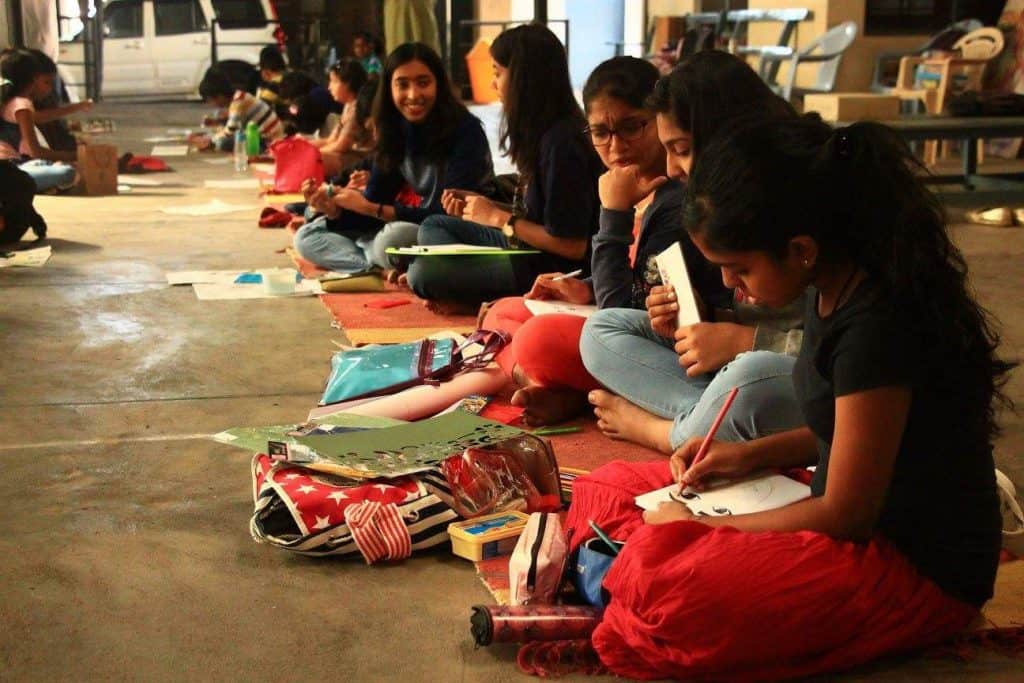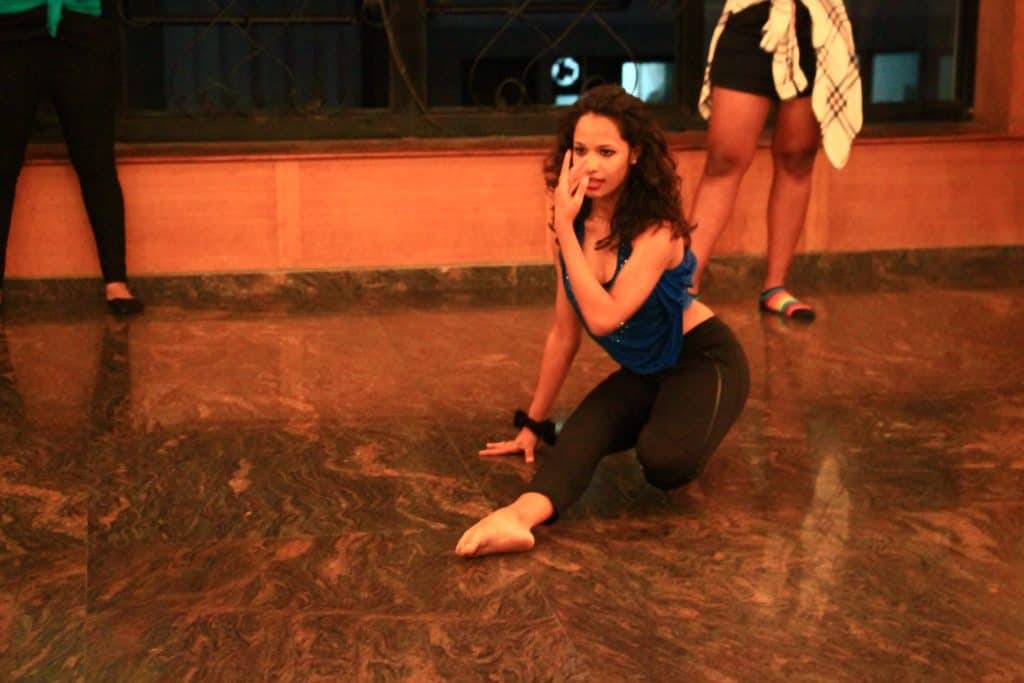After walking up the stairs to Lahe Lahe, a place for performing arts and theatre at Indira Nagar, you are greeted by a spacious area full of lovely colours and a miniature garden. The atmosphere is casual and yet enthusiastic, with people all around engaged in conversation, or savouring at the delicious food stalls. Several slightly nervous but determined performers await their turn.
An ordinary concert, one would think. Far from that. This is the result of a new concept called Jazba, which combines the need for a platform for young performers with raising awareness and to raise funds for various causes.
The two founders of Jazba, Ashwini Narayanan (16) and Priya Radhakrishan (17) are both enthusiastically engaged in the art. Priya trains in opera, and Ashwini sings, paints, acts and narrates. When they first became friends Priya says, “we had a conversation about how we are not getting getting platforms to perform, and about wanting to start something to help people out. Then she sent me a voicemail like, I have this idea, what do you think? So that’s how it started.”
They were quick to get their friends on board. “Our team were all close friends, They really started pitching in.” As Priya says, “we just started planning events. We had to start somewhere, so just decided to start and see how it goes.”
Their events take the form of a competition, with all the money raised (through a small fee for the performers, an entrance fee, and donation boxes) being donated to a previously selected charity in the name of the winner. As Priya explains, “it’s one thing to ask people for money and say that it’s going to charity, but it’s another thing to make them pay for an event that they would benefit out of.”
Their first event, Vocal Adrenaline, was so well-received that only a fraction of the willing participants could perform. It raised Rs 8,000 for Asha Niketan Bengaluru, a facility for the mentally challenged. After this success, the girls caught fire. They had started off with a vocal event, but as they themselves were engaged in so many different art forms, the question arose, “why don’t we do everything?” Events since have included dance, visual art and creative writing.
The overwhelming demand for these events, no doubt, arises from the lack of art platforms in much of India. Priya explains, “somewhere along the way we’ve got into this belief that arts education is a privilege. Everyone should have that opportunity. If everyone has the right to education, we should have the rights to Arts Education.”
Back in Lahe Lahe, a 13-year-old has finally managed to find the correct background music. Looking slightly nervous, he takes the microphone and begins to sing – and everyone around is completely blown away by his powerful, melodious voice. As the song ends, cheers fill the room, and he leaves the stage emboldened by his success.
He is not the only one. Ashwini recounts, “the girl who won Vocal Adrenaline, she had never performed in front of an audience before. She came up to the stage, and she blew our minds. Afterwards, she enrolled herself in a music school. She’s taken her talent to platforms where she can really showcase it, because now she has the confidence to do that.”
Providing a platform is only one side of the coin. Equally important is the fundraising. Jazba focuses particularly on smaller charities. The impact is visible, the money donated from their first event for instance was paid for the surgery of one of Asha Niketan’s patients. To raise awareness, a representative from the chosen charity also speaks at the event.
The team has struggled on the way.“It’s hard, honestly, because everyone looks at us as kids, still, and people don’t really believe in it that much,” Priya says. Further, higher costs make it difficult to scale up. “We can’t go too large, because then we won’t have enough to donate.”
They are looking to evolve further in the future. “Once we have enough funds, we’d like to run a parallel programme for people that aren’t from our backgrounds and who are really deprived of places to perform.” They also intend to open various Jazba chapters, as their model is easily replicable. “People from Maldives have expressed interest in our model. They’re going to run it out of our social media.”
More acts follow on stage. A slam poem ends in huge applause, a beat boxer entertains the room, singers and instrumentalists alternate and draw cheers from the appreciative audience. Perhaps this won’t change Indian society’s mindset about the arts instantly. But there is no denying the positive impact. Ashwini emphasises, “don’t be afraid to be too small. Don’t be afraid that you cannot make an impact, when there are so many things to change. I think one step goes a long way.”

